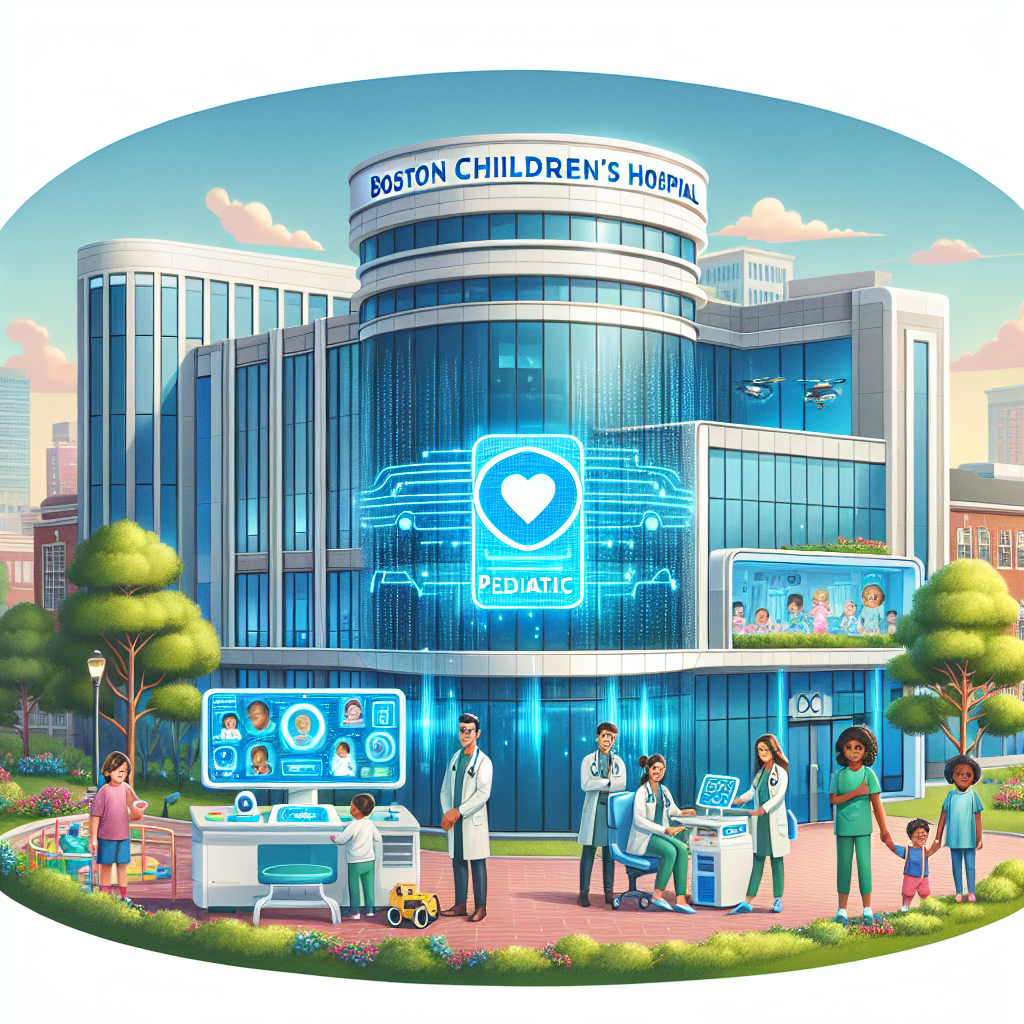Embracing Generative AI: Boston Children's Hospital at the Forefront of Healthcare Innovation
Within the hallowed halls of Boston Children's Hospital, a symphony of innovation harmonizes with the noble pursuit of healthcare excellence. As the medical and technological worlds collide, the hospital's Innovation & Digital Health Accelerator (IDHA) group is orchestrating a masterful rendition of this convergence. With the adept leadership of Annie, from the IDHA, Boston Children's is not merely adapting to the digital health revolution; it is leading the charge with vivacious intent and a strategic embrace of generative artificial intelligence (AI).
The Rising Crescendo of Digital Health
In the digital age, healthcare institutions face a cacophony of challenges, from operational redundancies to clinical inefficiencies. Addressing these requires not just the adoption of technology, but its astute application—something Boston Children's has internalized and executed with precision. Ranked among the nation's top pediatric hospitals and tied intimately with the academic prowess of Harvard Medical School, the hospital boasts a rich history of compassionate care that's now being transformed by the digital era.
Strategic Pillars and Generative AI's Role
Boston Children's IDHA is diligently constructed upon three foundational pillars, each addressing distinct facets of the healthcare paradox. Through the lens of these pillars, generative AI is viewed as a beacon of hope, a technology that permeates every aspect of the hospital's vision. With an ambition to champion pediatric healthcare at the technological table, the pursuit of AI-assisted solutions to alleviate staff burnout, support clinical teams, and enhance patient experiences is fervent and ongoing.
Operational Harmony through Innovation
At the crossroads of healthcare innovation, operational challenges emerge as a diverse troupe requiring a nuanced choreography. Among them, patient education stands out—a field where generative AI can enhance content accessibility across language barriers and literacy levels. For a children's hospital with a diverse demographic, such inclusivity is not just an operational improvement but a moral imperative.
Clinical Support in the AI Era
Clinical decision-making remains sacred and human-centric, but AI's supportive role is gaining prominence. By reducing the administrative load and presenting key information at clinial fingertips, generative AI emerges as a silent partner, facilitating a smoother performance that allows clinicians to dance to the rhythm of patient care without missing a beat.
Research Revolution with AI
The research sphere is inundated with vast datasets, where qualitative data often prove to be the most unwieldy partner. Generative AI steps onto the stage here as a partner in the analytical pas de deux, offering a 'first pass' at processing and organizing qualitative data, thus accelerating the tempo of discovery.
MedTutor: A Symphony of Education
One of the most melodic endeavors of the IDHA group is MedTutor, an LLM-powered tutor that aims to revolutionize medical education. Tailoring the educational experience to the learner's needs, MedTutor is poised to not just increase learning opportunities but enhance the quality of education. By leveraging hospital data for fine-tuning the model and focusing on disease-specific case generation, MedTutor promises a personalized learning journey akin to a concerto of knowledge orchestrated by AI.
Swirl: The AI-infused Diagnostic Tool
Swirl represents another concerted effort by the innovators at Boston Children's. This provider-facing system that aggregates clinical data is looking to integrate LLM to assist providers with pertinent patient-specific questions. The harmony of Swirl and AI promises a reduction in the tedious search for information and an increase in efficient, quality patient care. Additionally, contextual error detection and alert integration offer a new cadence to patient safety and error reduction.
[Include relevant links to additional background information on AI in healthcare contexts]
The Future Crescendo of Generative AI in Healthcare
With palpable excitement about the potential of generative AI, Boston Children's is eager to witness and influence the technology's maturation. The anticipation of AI's impact on healthcare is akin to awaiting the climax of a gripping musical performance. As the hospital continues to explore and evaluate new AI capabilities, it remains steadfast in its commitment to equity, diversity, and inclusion. The creation of an LLM implementation equity guideline is a testament to this dedication, ensuring that every stride made in AI is a step towards a more equitable healthcare future.
A Final Ovation for Boston Children's Vision
The applause that punctuated Annie's presentation is emblematic of the healthcare community's recognition of Boston Children's IDHA group's groundbreaking efforts. With a vision that marries innovation with patient-centered care, and generative AI as its instrumental partner, the hospital is set to redefine pediatric healthcare. As the curtain falls on today's performance, one thing is clear: the future of healthcare, conducted by AI's deft hand, will be more harmonious, efficient, and inclusive, thanks to pioneers like Boston Children's Hospital.
In the grand narrative of healthcare, Boston Children's Hospital's expedition into the realm of generative AI is not merely a subplot; it is a captivating story that deserves its own spotlight—a tale of courage, innovation, and the indomitable spirit of human compassion aided by the power of artificial intelligence.
Related News
- Unraveling the AI Revolution in Healthcare with Oscar Health
- Decoding the Mysteries of Genetic Disorders: The Role of AI in Orphan Disease Research
- Navigating the AI Renaissance: A Call for Measured Optimism and Collective Responsibility
- A Brave New World: The AI Revolution Unfolds
- Harnessing the Accelerated Pace of AI Innovation: A Deep Dive into Recent Developments
